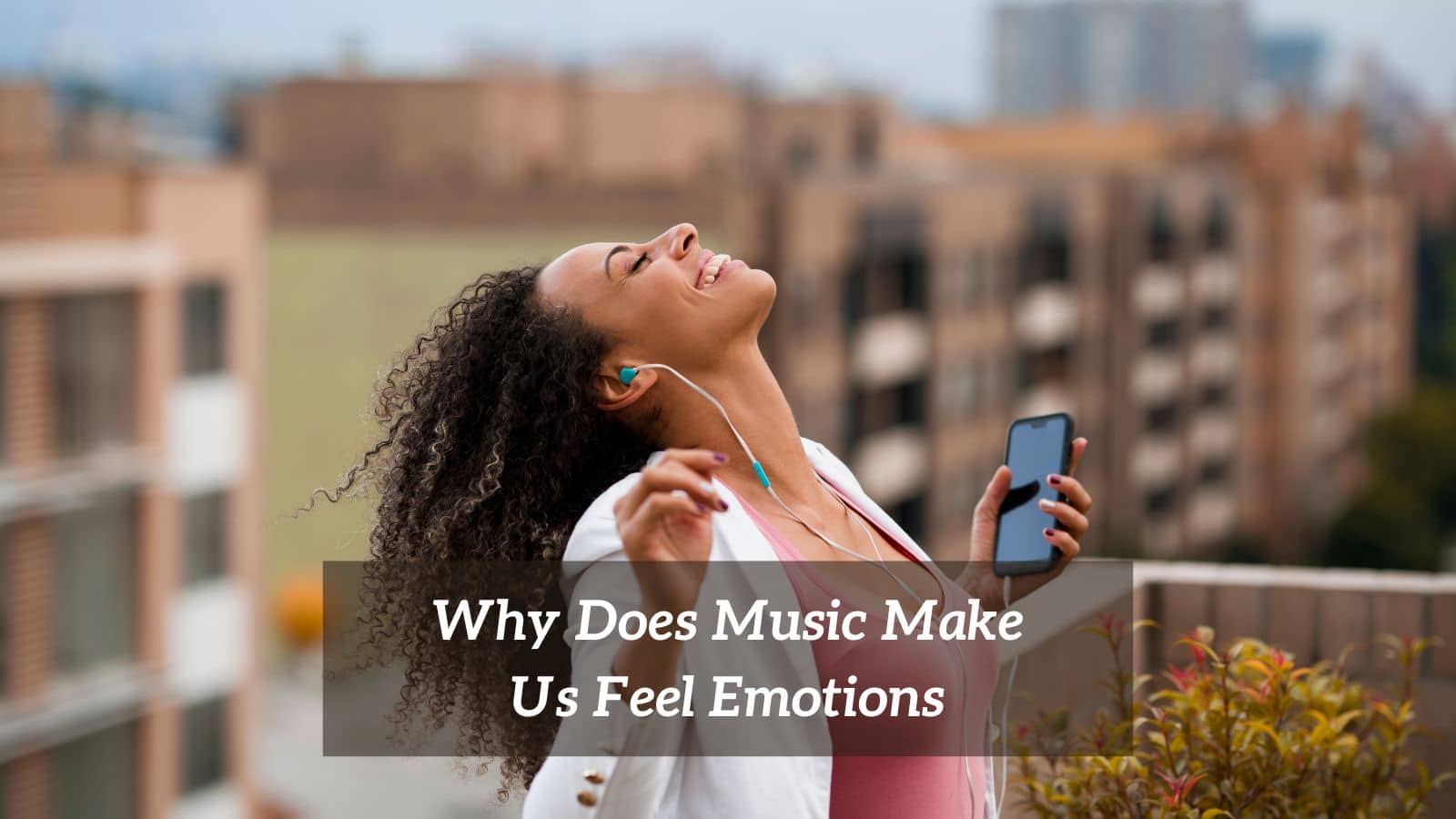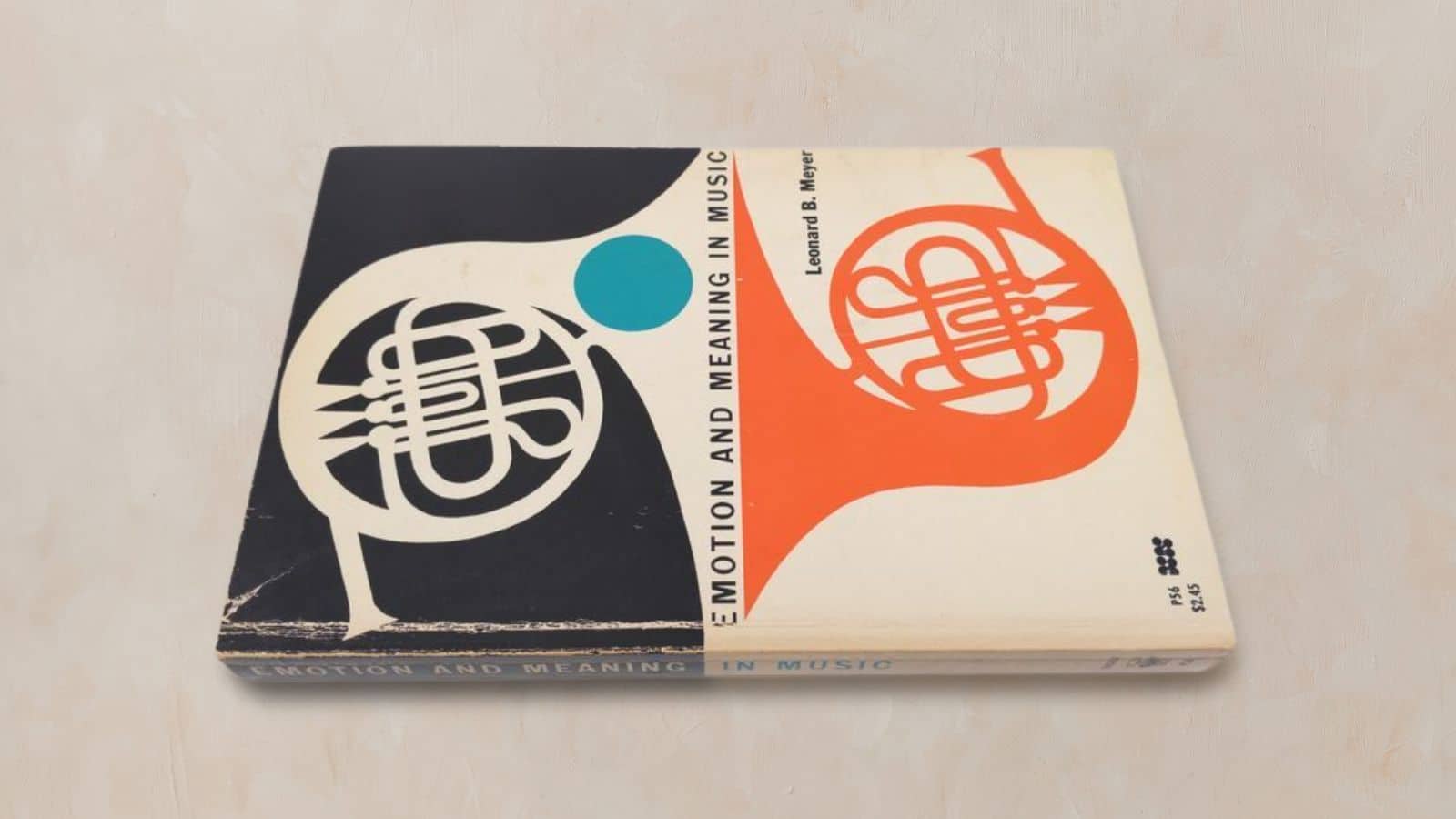
This has to be one of the most asked questions about music. It is probably something everyone has from time to time pondered perhaps when they find themselves responding emotionally to a piece.
Maybe it is a piece that you know well and return to, to be back in that emotional state again; particularly if it is pleasurable.
Why Does Music Make Us Feel Emotions
What this line of thought suggests is that any emotional response we feel to music is a deeply personal one. You could, for instance, play the same piece of music to a hundred people and receive a different answer as to how they feel about it every time.
From some perhaps no response at all. It is a philosophical, phycological and cultural response that prompts emotions in us from music making the understanding of this human condition intriguing and complex.
Where I believe we can uncover a universal human trait is in our response to rhythm and pulse. Whilst I have no direct evidence to support my thought, I would imagine very few human beings have little or no emotional response to a pulse or rhythm.
This, I would suggest, is for several reasons. One of those reasons is that we all have a pulse that enables us to be alive giving each of us a rhythm of life. Another reason is that even in vitro we are aware of and respond to the beating heart of our mothers.
Even before we are born we are exposed to a sound and a rhythm that can cause us to react. Whether that reaction is an emotional one I do not know.
A further and perhaps more fragile reason is that we are all part of a colossal universe that vibrates. Everything, as far as I understand physics, has a frequency at which it vibrates, including us.
That vibration is something we are exposed to from the minute we set foot on the planet until the day we die. We are surrounded by an extensive array of pulses and we are a collection of vibrating particles.
From this rhythmic viewpoint then can we shed a little light on one of our most fundamental emotional responses to the rhythm of music through the rhythm of us and our world?
To illustrate the point further, if you have ever experienced quite young children’s response to music it is fascinating and helpful. Their unbiased impulse tends towards moving to music, dancing, and singing as if it is a call to just have fun.
It helps if the piece has a lively tempo as you would expect, but it is the unprompted natural response that even very young children often have that I feel supports my argument. Alter the tempo of a piece, make the rhythms slower and you find the reactions align accordingly.
As we grow up we are exposed to all manner of bias. We learn to associate certain pieces perhaps that our parents or our peers like or dislike in the same way. Our natural response can become coloured, masked, subdued or even lost altogether.
Equally, of the thousands of pieces of music we experience in our lives, consciously listening to or passively absorbing, to them we attach meaning. If meaning is attached to a given piece or pieces then there it seems reasonable to consider that there is also emotion attached too.
This is a topic area the author Leonard B Meyer analyses extensively in his book from 1956 titled “Emotion and Meaning in Music”.
What this meaning is to an individual only they can say with any clarity and certainty even though there may be a collective response that parallels many thousands of other human beings. It depends on the depth of emotional response we are trying to understand with a piece of music.
In general terms it is more likely that a fast-paced piece of drum and bass or techno will cause a similar emotional response like a raised pulse rate or the urge to move or dance Person to person though, on a deeper level, some may detest the genre even though their instinctive reaction is similar.
Where we discover some universals in the world of film music. Whilst we may never completely agree or align our emotional responses to Eminem’s music, the slow movement from Mahler’s Fifth Symphony or a piece of Medieval plainchant, it is in the genre of movie scores that I believe we might uncover some richer seams to plunder.
What we find in the scores of movies are several things. A really good movie composer knows just how to evoke the desired response from their audience and in doing so creates a strong attachment for that person to that score.
The strength of a brilliant score coupled with powerful images leaves a lasting response and meaning.
Movie composers know that there are certain combinations of chords, rhythms, melodies, textures and instrumentations that will in all probability illicit a particular reaction in a person.
Listen to any one of John William’s astonishing scores and you’ll have a window into exactly what I mean.
The mystery Williams weaves around his ‘Hedwig’s Theme’ from Harry Potter works because of the celesta, the lilting rhythm, the moderately paced tempo, and the minor tonality twinned with the brilliant inclusion of chromatic notes that just fall outside the key centre.
If the same theme had been played on a bassoon and timpani, the magic would be dispelled in favour of comedy.
Consider any of the themes William’s composed for ‘Star Wars’, ‘Indiana Jones’ or ‘Superman’, to select but a few, and what you have is bold, melodies based on fifths and octaves played by heroic brass and supported by an impressive battery of percussion.
Composers like Williams draw on what have become musical axioms; learned or maybe instinctive emotional responses to particular combinations of musical elements.
Interestingly, such is the effect of some film music that you don’t need to have seen the film to react the same way to the score.
I’ve played these themes mentioned above to listeners who do not know the films and their descriptions of how it makes them feel are remarkably similar. Once they do see the film then the response seems to embed and strengthen.
Our emotional responses to music are I believe instinctive to a point as well as learned. Our cultures play a vital role in our responses to music as well as what we are fed by the media.
I would go as far as to claim that as human beings, we need music to comfort and console, revive and inspire. Whatever we chose to listen to and whatever it means to each of us through music we have a universal emotional bond.


